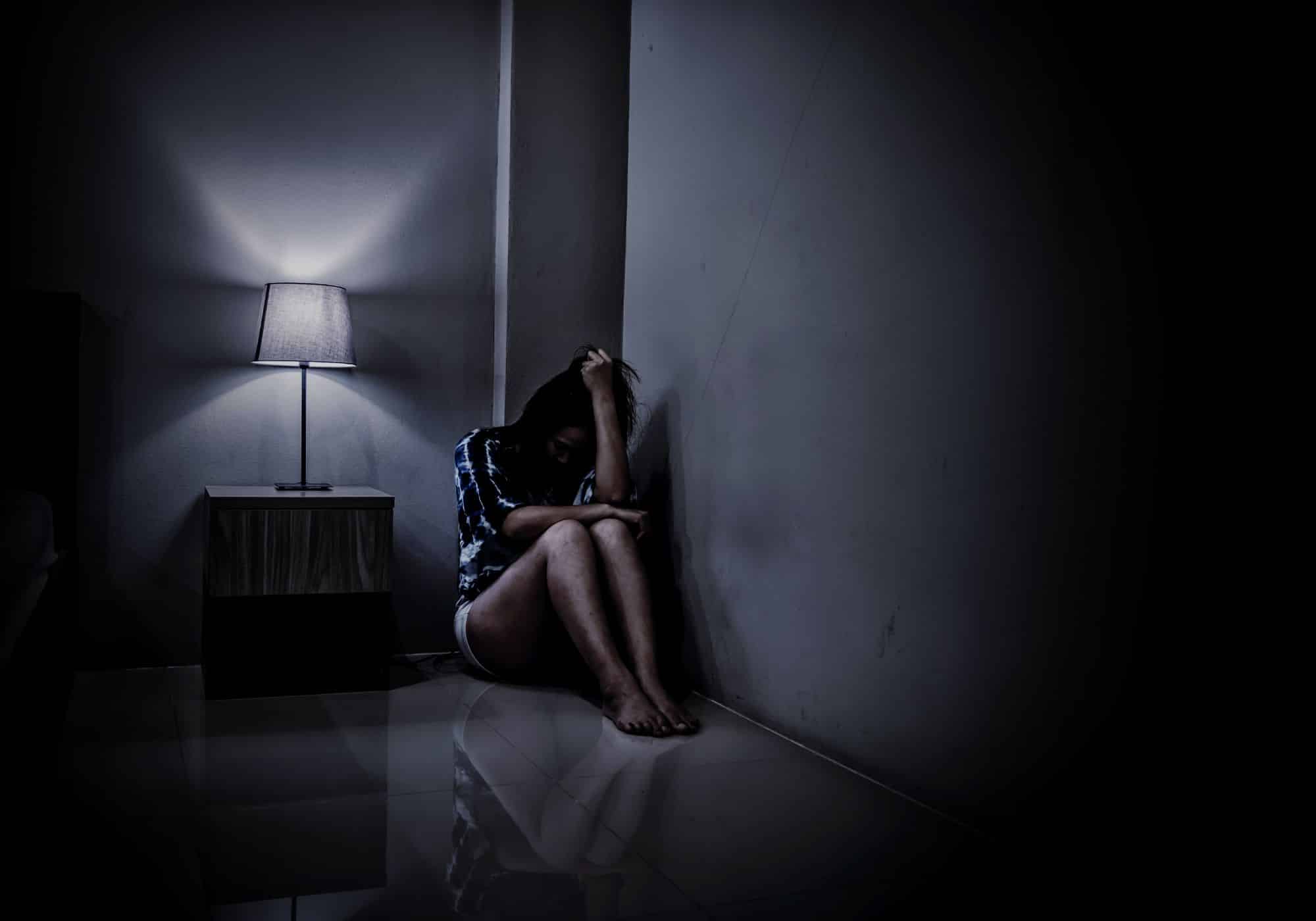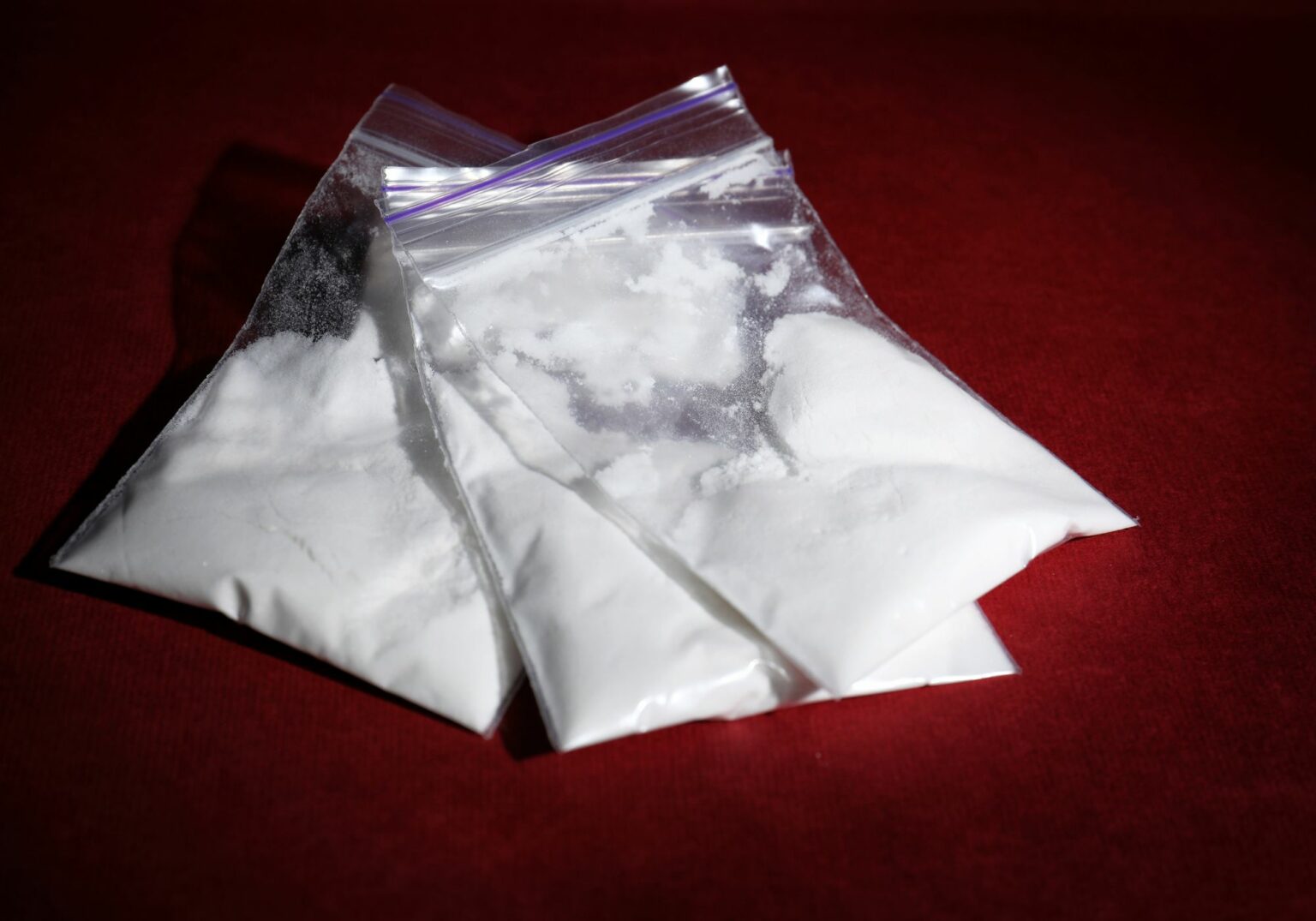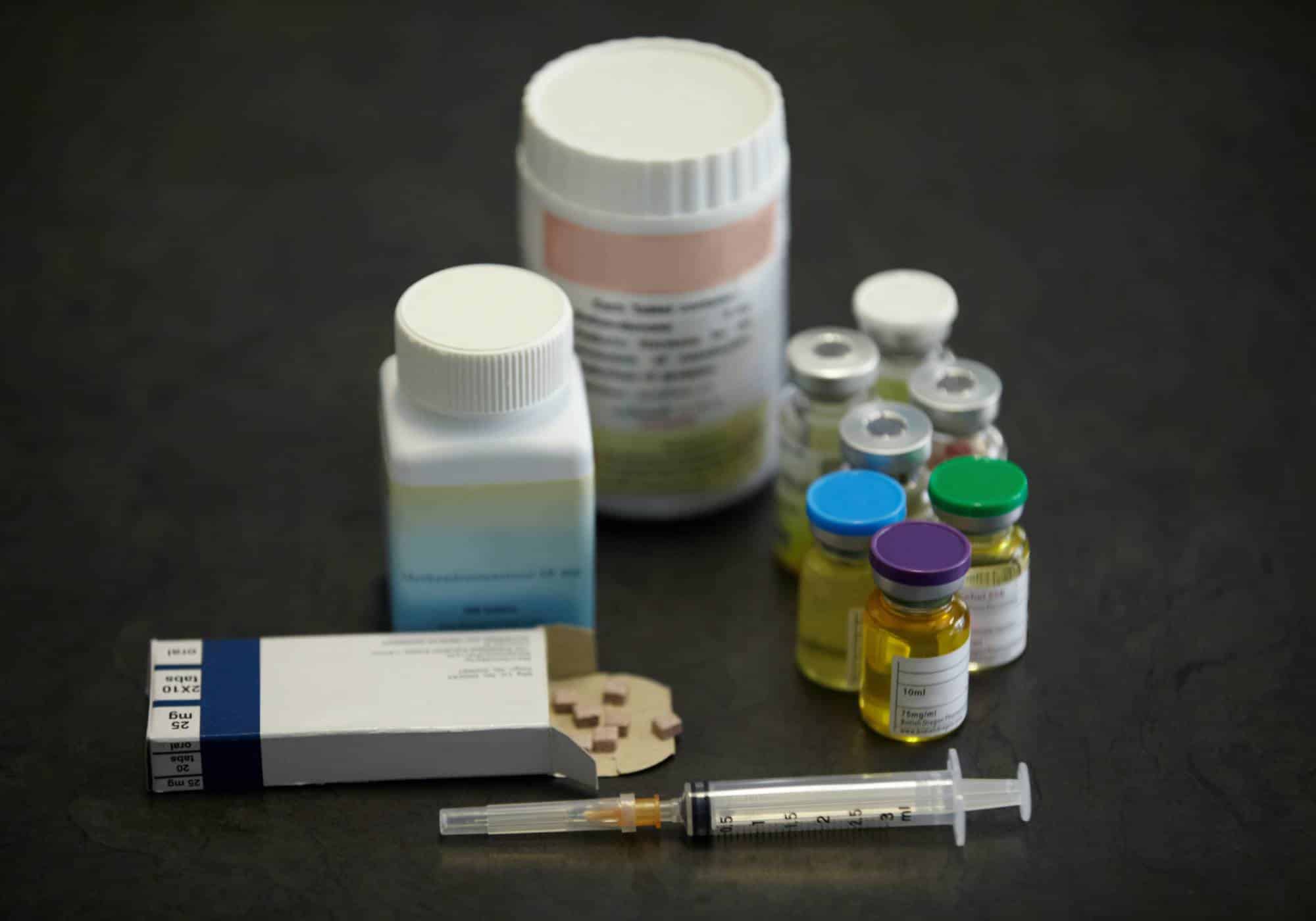PCP Withdrawal Symptoms
Phencyclidine, commonly known as PCP, is a substance known for its potential to cause strong psychological dependence. This dependence is often characterized by an intense craving for the drug and a persistent drive to obtain it. Interestingly, these cravings can persist for months, even after ceasing drug use.
Immediate PCP Withdrawal Symptoms
When individuals stop using PCP, they usually face a range of Phencyclidine withdrawal symptoms. These can start to manifest as early as 8 hours after the last usage. The initial phase of Phencyclidine withdrawal includes a variety of symptoms such as:
- Fear and agitation
- Anxiety coupled with irritability
- General restlessness
- Excessive sweating
- Headaches
- Muscle spasms, twitching, and tremors
- The breakdown of muscle fibers
- Vivid hallucinations
- Seizures
- Rapid, uncontrolled eye movements
- Diarrhea
- Increased body temperature
- Acidosis (excess acid in body fluids)
Long-Term Effects of PCP Withdrawal
The journey through PCP withdrawal can be prolonged, often stretching several months to a year after detoxification. The long-term withdrawal effects are influenced by factors like how long, how often, and how much PCP was used. These may include:
- Persistent depression
- Suicidal ideations
- Memory impairments
- Significant weight loss
- Difficulty with speech
- Cognitive impairments
- Sleep disturbances
- Various mood disorders
Understanding the depth and breadth of PCP withdrawal symptoms is crucial for both individuals and caregivers. It underscores the importance of seeking professional help and support during the withdrawal process. Remember, overcoming addiction is a journey, and it’s always okay to ask for help. If you or a loved on are struggling with PCP Addiction, don’t hesitate and call us today to begin your PCP Addiction Treatment in Atlanta, GA.

What is PCP?
Phencyclidine, more commonly known as PCP, is a drug that falls under the category of dissociative anesthetics. It’s notorious for inducing a powerful sense of euphoria, vivid hallucinations, and a feeling of detachment from reality. Interestingly, users often report sensations of extraordinary strength or a complete absence of fear.
PCP’s origins date back to the 1950s when it was initially developed and used as an intravenous anesthetic in medical settings. However, its use in medical practice was quickly discontinued. This decision came about after it became evident that PCP had severe side effects, including causing patients to experience delusional thoughts, irrational behavior, and a state of agitation.
Despite its ban and classification as an illegal substance, PCP has gained popularity on the streets. Its allure lies in its potent mind-altering effects. Both its historical context and current status as an illicit drug highlight the complex nature of PCP and its impact on users.
Understanding what PCP is and its effects is crucial for awareness and education. This knowledge plays a vital role in addressing substance abuse and promoting informed choices about drug use.
PCP Withdrawal Timeline
Understanding the withdrawal process from Phencyclidine (PCP) starts with knowing its half-life — a term that refers to the time it takes for half the dose of a drug to be eliminated from your body. For PCP, this period ranges from 11 to 51 hours, varying based on the dosage and method of consumption.
When it comes to PCP withdrawal, there’s no one-size-fits-all timeline. The duration and intensity of Phencyclidine withdrawal symptoms can vary widely, influenced by several key factors:
- Co-existing medical conditions
- Duration and frequency of PCP usage
- Presence of other drugs or chemicals in your system
- Your age, body weight, and general health
- How you consumed PCP
Interestingly, while physical withdrawal symptoms might be relatively mild and short-term, the psychological impact of withdrawing from PCP can be profound. These mental and emotional symptoms can persist for an extended period, sometimes up to 6 months to a year. Here are some of the long-term effects you might encounter:
- Ongoing difficulties with speech
- Memory loss
- Deep-seated depression
- Suicidal thoughts
- Anxiety and nervousness
- Tendency to withdraw from social interactions
It’s important to note that these symptoms can continue to affect individuals even a year after they’ve stopped using PCP.
The journey through PCP withdrawal is complex and varies greatly from person to person. Understanding this process is vital for anyone seeking to navigate through it, emphasizing the importance of professional guidance and support.
What Causes PCP Withdrawal?
Withdrawal symptoms are a common occurrence when someone ceases using a drug their body has grown dependent on. This is particularly true for PCP, a drug known for its profound impact on the brain.
When PCP is used frequently or in high doses, it prompts a significant change in the brain’s chemical makeup. PCP specifically interferes with how brain cells communicate, altering the levels of vital neurotransmitters like serotonin and dopamine. These chemical messengers are crucial for mood regulation, movement, and sensory experiences. PCP can either ramp up or dial down these messengers beyond their natural levels, forcing the brain to adapt and try to maintain a balance.
However, when PCP use is suddenly stopped, the brain finds itself out of sync. It continues to overproduce or underproduce these neurotransmitters in the absence of the drug. This chemical imbalance is what triggers various withdrawal symptoms, such as tremors, agitation, and in some cases, seizures.
Understanding the cause of PCP withdrawal symptoms is essential in appreciating the challenges faced during detoxification. It’s a complex process where the brain is essentially trying to recalibrate itself after the disruption caused by prolonged PCP use.
Is PCP Withdrawal Dangerous?
While withdrawing from PCP might not have the intense physical symptoms associated with substances like alcohol, benzodiazepines, or opioids, it’s crucial to not underestimate its psychological impact. These mental and emotional symptoms can indeed pose significant risks.
One of the key concerns during PCP withdrawal is depression, coupled with anhedonia – a state where an individual finds it difficult to experience pleasure. These conditions can escalate to more severe states, including suicidal thoughts and behaviors. It’s vital to take these symptoms seriously. If you or someone you know is experiencing such symptoms after quitting PCP, it’s imperative to seek immediate mental health or medical assistance.
Another aspect of PCP withdrawal is hallucinations. While hallucinations themselves may not be directly harmful, they can lead to dangerous situations. These include accidental injuries, unpredictable or erratic behavior, and in some cases, violent actions.
The withdrawal process from PCP, particularly its psychological aspects, should be approached with caution. Although it might not be physically life-threatening like some other substances, the mental health risks it poses are significant. Professional guidance and support are essential in navigating this challenging period safely.
How Can a Doctor Diagnose PCP Withdrawal?
Doctors diagnose PCP withdrawal by evaluating a combination of patient health history, symptom presentation, and drug screening results.
For an accurate diagnosis, it’s crucial for individuals experiencing withdrawal symptoms to be open about their drug use. Withholding information about drug consumption can lead to misdiagnosis, as the doctor might attribute the symptoms to other causes.
In terms of diagnostic tools, drug screens play a vital role. While blood tests are an option, they tend to be costly and not always readily available. Urine tests are more commonly used due to their efficiency, affordability, and ease of administration.
Detecting PCP Withdrawal in Newborns
PCP withdrawal can also affect newborns, particularly if the mother consumed PCP during pregnancy. The drug can transfer to the baby, potentially causing symptoms such as:
- Diarrhea
- Hypertonicity (abnormal muscle tightness)
- Jitteriness
- Loss of consciousness
- Vomiting
- Sudden emotional outbursts
Expectant mothers with PCP addiction may unknowingly predispose their newborns to withdrawal symptoms. Addressing the addiction during pregnancy can greatly reduce the risk of the newborn experiencing distressing or even life-threatening withdrawal symptoms after birth.
Diagnosing PCP withdrawal, whether in adults or newborns, requires a comprehensive approach that includes patient history, symptom assessment, and drug screening. Open communication and appropriate testing are key to ensuring an accurate diagnosis and effective treatment plan.
The Effects of PCP on the Brain
PCP impacts the brain in a unique and complex way. It primarily targets a neurotransmitter called glutamate, which plays a crucial role in various brain functions like cognition, emotion, and perception. PCP interferes with glutamate’s normal activity, leading to disrupted communication between brain cells.
This disruption occurs when PCP attaches itself to a specific type of glutamate receptor, known as the NMDA receptor. By blocking these receptors, PCP hinders the regular flow of glutamate signals, leading to its well-known hallucinogenic effects.
While research into PCP’s long-term brain effects is ongoing, existing studies point towards notable cognitive impairments in chronic users. These include memory issues, challenges with attention and concentration, and a decrease in problem-solving skills.
Beyond cognitive effects, long-term PCP use is also associated with mood disorders. There have been instances of depression, anxiety, and even psychosis in regular PCP users.
It’s essential to recognize the potency and risks of PCP. Its usage poses significant dangers to both physical and mental health. If you or someone close to you is dealing with PCP addiction or its repercussions, seeking professional medical help is a critical step towards recovery and maintaining well-being.

Benefits of PCP Detox
Undergoing detoxification from PCP doesn’t have to be a solitary or home-based endeavor. Opting for a professional detox setting can offer a multitude of benefits, ensuring a safer and more comfortable process. Here’s what you can expect:
- Integrated Care and Treatment Referrals: A professional detox program is the first step in a comprehensive care plan. It often includes referrals to specialized treatment for PCP addiction, ensuring a seamless transition from detox to ongoing recovery support.
- Alleviating Withdrawal Symptoms: Detox facilities are equipped to ease the discomfort of withdrawal symptoms, making the process more manageable and less distressing.
- Handling Medical Emergencies: Inpatient settings are prepared to deal with any medical emergencies that might arise during detox, providing peace of mind and immediate medical attention.
- Addressing Co-Occurring Medical Issues: Professional detox also involves care for any other existing medical conditions, offering a holistic approach to your health.
- Supportive Counseling: Detox isn’t just about physical health. Counseling, including motivational interviewing, is a part of the process, encouraging and nurturing a desire for change and a drug-free life.
Medications During PCP Detox
In detox, medications play a vital role in easing withdrawal symptoms. While there are specific medications for detoxing from substances like opioids and alcohol, there isn’t yet a dedicated medication for countering PCP effects. However, various symptoms like anxiety, depression, sleeplessness, and nausea can be effectively managed with medication. Using these medications can ease discomfort during detox, making it more feasible to stay in the program and smoothly transition to further addiction treatment.
Choosing professional detox for PCP withdrawal is a step towards a safer, more supported recovery journey. It offers a blend of medical care, emotional support, and a pathway to comprehensive addiction treatment, setting the foundation for long-term recovery.
PCP Addiction Treatment in Atlanta, GA
While detoxification is a critical step in managing withdrawal from PCP, it’s just the beginning of a longer journey towards recovery. Detox on its own isn’t a complete solution for long-term drug use. Engaging in our outpatient treatment program for PCP addiction is key to building a solid foundation for long-term recovery. These programs are designed to delve into the root causes of your PCP use.
A core component of these treatment programs is behavioral therapy, which includes a variety of approaches:
- Individual Counseling: This one-on-one therapy helps you understand and change the thought patterns that contribute to your PCP use.
- Group Therapy: Sharing experiences and learning from others in similar situations can provide support and insights into your own journey.
- Family Therapy: Addiction doesn’t just affect the individual; it impacts the whole family. This therapy helps to heal and strengthen family relationships.
These therapies collectively work towards several goals:
- Boosting Your Motivation for Change: Finding the inner drive to alter your lifestyle and habits.
- Identifying and Overcoming Obstacles: Recognizing what holds you back and developing strategies to overcome these challenges.
- Providing Incentives for Recovery: Encouraging progress with positive reinforcements.
- Developing Coping Skills: Learning how to handle stress and cravings without reverting to drug use.
- Finding Alternatives to Drug-Using Activities: Discovering new, healthier ways to spend your time.
- Enhancing Interpersonal Relationships: Improving how you interact with others, which can be a crucial support in recovery.
- Establishing Healthier Habits: Building new patterns of behavior that support a drug-free life.
Post-detox treatment for PCP addiction is about much more than just abstaining from drug use; it’s about transforming your life and addressing the deeper issues that led to addiction. With the right support and therapy, long-term recovery and a healthier, happier life are within reach. If you or a loved on are struggling with PCP Addiction, don’t hesitate and call us today to begin your PCP Addiction Treatment in Atlanta, GA.












